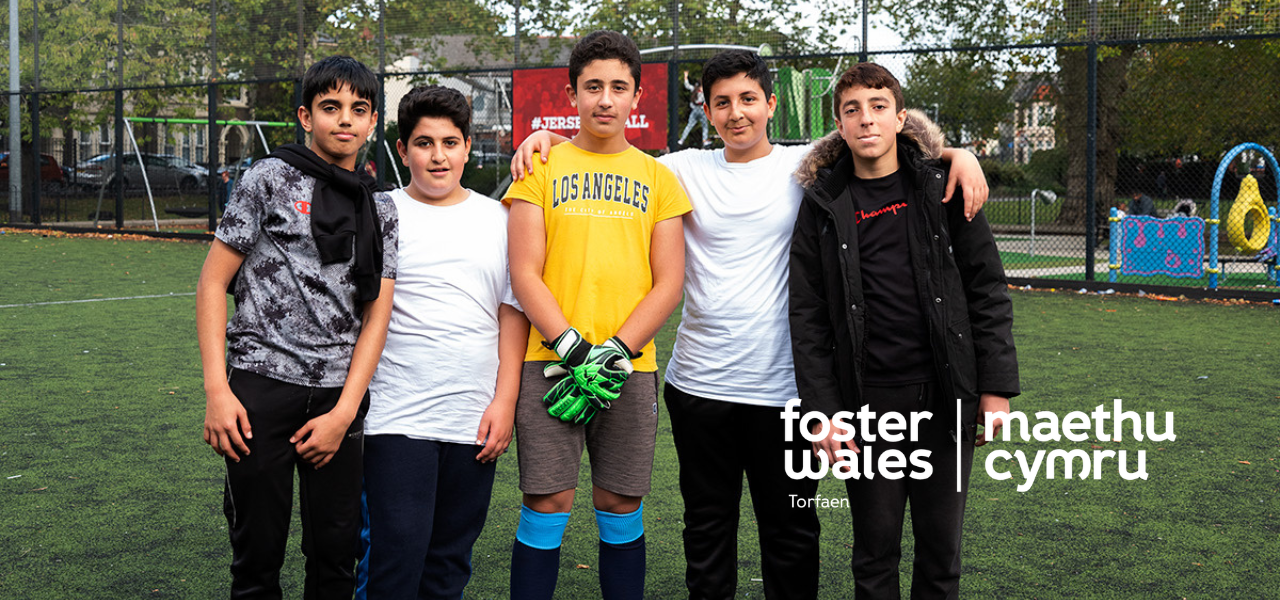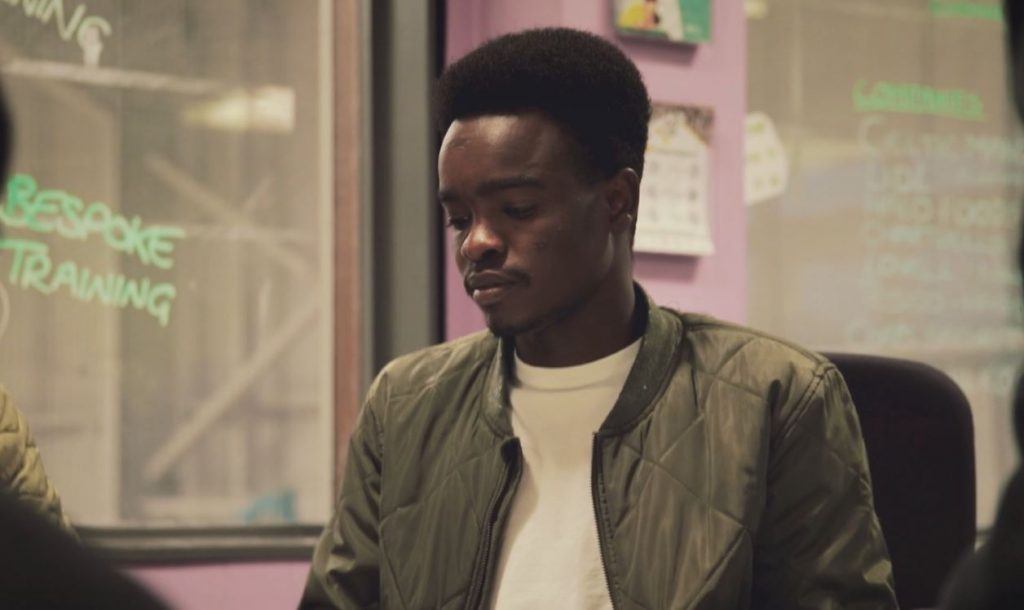
In 2021 all local authorities were tasked to provide crucial help to unaccompanied asylum-seeking children and young people under the National Transfer Scheme. Working together is vital to make the scheme successful, and Foster Wales actively supports this initiative.
Maybe you have asked yourself, ‘How can I help young refugees in Wales’?
This article aims to guide you and provide information about:
- The basics: what is the difference between a migrant, a refugee, and an asylum seeker?
- What to know about young refugees seeking asylum?
- Become a foster carer or provide supporting lodgings to help young refugees
- Where to start
If you are interested in helping young refugees seeking asylum in your local area and want to find out what you can do, keep reading.
What is the difference between a migrant, a refugee, and an asylum seeker?
Every day thousands of people make the incredibly difficult decision to leave their countries. Some search for a better life, but many simply have no other option than to flee war, persecution, or political turmoil. While the categories of those who seek relief in another country are often confused, there are a few key differences:
Migrant
This is a person who moves from one country to another to find work or better living conditions. Some economic migrants may ultimately settle in their destination country and could then be considered an immigrant. Migrants don’t flee war or persecution and usually can go back to their home country whenever they want.
Refugee
A refugee is a person forced to leave their country to escape war or persecution because of their race, religion, nationality, or natural disaster. The process of obtaining refugee status can last for years, forcing many applicants to wait abroad in refugee camps with dangerous living conditions.
Asylum seeker
A person who has left their country of origin to escape war, persecution or natural disaster and has formally applied for asylum in another country but whose application has not yet been concluded. Overall, the asylum process can take years to conclude, but it is everyone’s legal right to seek asylum. Asylum seekers must apply for protection in the country of destination—meaning they must arrive at or cross a border to apply.
What to know about young refugees seeking asylum in Wales?
The trauma they have experienced
The majority of young refugees arriving in the UK seeking asylum come from countries where there is war, conflict or oppression. Many come unaccompanied from Afghanistan, Iran, Iraq, Syria, Vietnam, and Eritrea.
They are often traumatised and usually between 14 and 17 years old. The journey they have been through would have been difficult for most adults – they went through it alone.
The needs and circumstances of these young people are complex. It is unknown how many young people fail during that journey or the detail of the experiences they suffered.
“They come from many different countries, often fleeing war. We can’t even imagine what they’ve been through. They find it very difficult to inform us of the experiences they’ve gone through because it’s been very traumatic for them. They’re one of the most kind, thoughtful and caring groups that we’ve worked with. They’re always looking out for each other and people within their communities.”
Chloe, Newport Youth Service, Newport City Council
Many asylum-seeking young refugees have experienced traumatic events and losses. These may include prolonged exposure to violence, often towards their family, separation from family and places they used to call ‘home’, uncertainty and possibly even loss of family members. Some may develop mental health problems, including post-traumatic stress disorder (PTSD), depression, self-harm, and behaviour issues. By offering them support and a safe place today, you can give them a chance to rebuild their lives and overcome the trauma they experienced at such a young age.
There is not much information about them
We often know little about these young people at the time when they arrive in the UK. The situation in their home country may have forced them to flee at short notice, which means they do not have many belongings or documents to confirm their identity. We know that they have been through a lot more than we can imagine.
Their traumatic experiences also make them naturally cautious and, understandably, less open to strangers. The nurturing and supportive environment they need can help them relearn how to trust people, accept help, open up and build relationships again.
Cultural and religious differences
Naturally, there are also cultural and religious differences that can be challenging when you try to offer your help to these young people.
One of our foster carers, Lucy, who foster young refugees, said:
“When you’ve got a child or a young person from another country, you need to open your eyes to a lot more experiences, learning about the culture, where they come from, what their families look like, what their homes look like, how they work, what they do for education. I think it’s so very different, so you have a different experience. I find it quite rewarding, learning everything, and seeing a child learning our culture, and us learning theirs”.
They often speak very little to no English at first. British culture and customs are very different to what they know. The cultural and social differences can be challenging to understand and navigate, especially for those who have never experienced them. In many cases, all they have is a religion and faith; small gestures like providing a Muslim person with a Holy Quran and introducing them to a local mosque can help them feel more comfortable.
Due to a language barrier, it may be challenging at first to communicate and find necessary information about the young person, like medical history or food preferences. People who want to help young refugees can do it by learning a little about their home cuisine, customs, and countries. Small steps like these can make a big difference to how these vulnerable young people feel.
So, what can you do to help young refugees in your local community?

Become a foster carer or provide supporting lodgings to help young refugees
The most crucial step to helping young refugees is to offer them a place to stay. It prevents them from becoming homeless or missing, especially if they are drawn to big cities where they can be at risk of human trafficking or sexual exploitation.
If you have a spare bedroom in your house and want to help you can offer supported lodgings. This scheme provides an opportunity for young people aged 16 to 21 who may be leaving care or who may not be able to live with their families. By offering supported lodgings to young refugees, you can help them develop practical, independent living skills so that one day they will be capable of moving on into their own accommodation.
You can also become a foster carer to a young refugee. It usually works better if you already have some fostering experience, but don’t be discouraged. The basic criteria to foster are a spare bedroom, an open heart and being over 18 (or over 21 depending on your local authority). Also, we will be able to help you work out if now is the right time for you to foster.
What help do young refugees really need?
Most young refugees are teenagers and just like any other teenagers, benefit from guidance, support, and advice. They have established preferences and can manage their own self care, which means that you may act more as a mentor or an advocate for them. Here’s where previous experience with raising your own teenage children or fostering may be useful although not always necessary. You may already have your established ways of dealing with unexpected situations or solving problems in a way that you know is effective.
One of our carers, Lee, described how he and his wife dealt with their first placement providing care to an asylum-seeking young refugee:
“We didn’t have much experience with teenagers, we had experience with young children. From day one he was super shy. As I said, he knew no English whatsoever, so we knew nothing about him. But all that experience we’ve been through while fostering gave us some idea of where to start. Our first plan was to find out his medical history; does he have any ongoing health issues; does he take any pills. We kind of established food as well.”
Fostering or providing supported lodgings to young refugees is about guiding them just like any other teenager. People at that age often need advice navigating things like access to health services, or practical skills such as cooking, budgeting, or how to sort out bills. They may need help with being enrolled into college and encouragement to gain qualifications.
As a carer to a young refugee seeking asylum, you may need to help prepare them for the asylum process, which, by its nature is not easy but can be decisive for their future in the UK. Being an advocate and offering emotional support to a young person in this difficult time can be invaluable.
What support can I get?
Cultural differences and language barriers can make this journey a bit more difficult at the beginning, but for people who are curious, open-minded and enjoy learning, fostering a young refugee can also be a very rewarding experience.
To overcome the language barrier your local council may be able to provide you with a translator; it is also worth reaching out to adults who work in local clubs, community centres or schools. A local teacher or a sports coach from the same cultural background may be able to become a mentor to the young refugee you are supporting.
Technology also helps with providing access to applications like Google Translate and others, which can help in day-to-day communication until the young person becomes more fluent in English.
Our fostering community also provides vast support. Every question that you may have, someone else has already asked, so there are answers available. People are happy to share their knowledge and help each other. With Foster Wales, you never feel alone.
Lastly, charity organisations, for example, Barnardo’s, can offer you help and guidance too. One of our local foster carers recommended contacting a charity which can support you and a young refugee in your care by providing information and advice they need to begin integration into Welsh society.
How to start fostering a young person seeking asylum
Are you ready to open your home and heart to vulnerable young refugees and guide them into a better and brighter future? We want to hear from you!
If you live in Torfaen, Wales, send us a message, and we will get back to you as soon as we can. Alternatively, you can call us on 01495 766669 for a friendly non-obligatory chat.
If you live elsewhere in Wales, visit the Foster Wales website, where you can find all the necessary information about fostering and contact details for your local authority fostering service.
Choosing Foster Wales is a decision to work with real people in your local community, who put children’s best interest at the core of everything they do.

